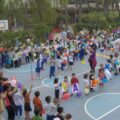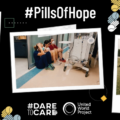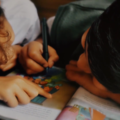
Workshop
Talitha Kum, sisters against trafficking
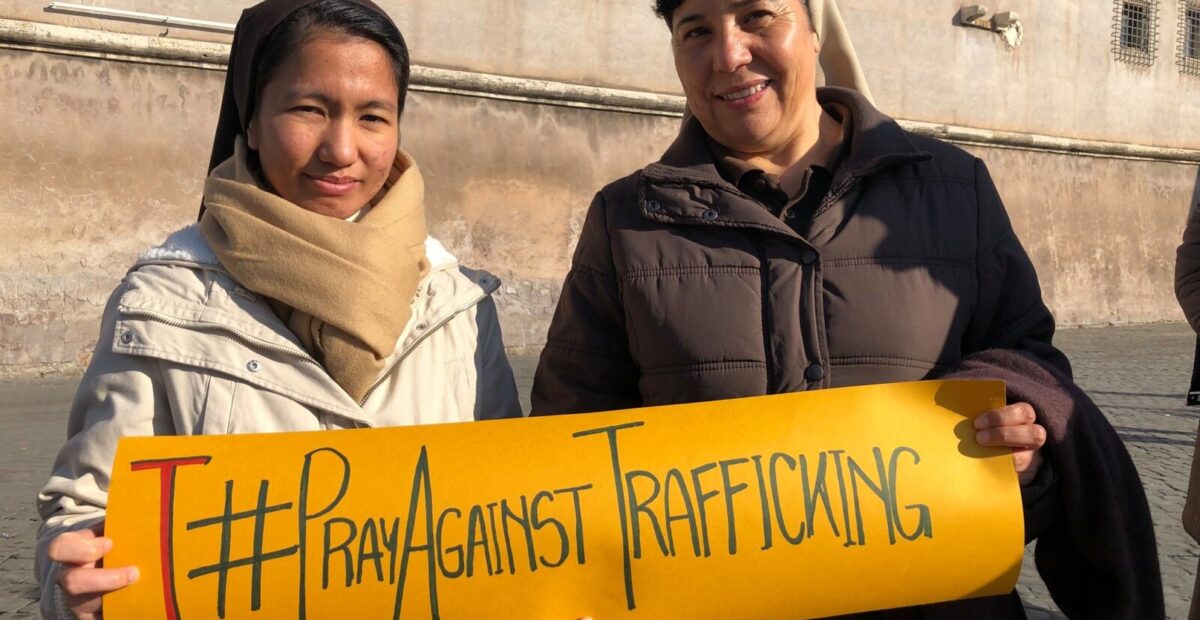
A marathon of prayer against human trafficking is scheduled to be held on February 8, 2021 with reflections and testimonies of people from around the world who are engaged in the fight against the scourge of human trafficking. Sister Gabriella Bottani is coordinator of Talitha Kum, a network of Superiors General against human trafficking which is promoting the event. She talks about their commitment to remove this wound from society.
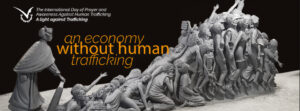
“He took her by the hand and said to her, ‘Talitha kum!’ which means “Little girl, I say to you, get up!” (Mark 5:41). These are the words of Jesus to the 12 year old daughter of Jairo, the synagague leader from Capernaum. The girl was lifeless, but when He spoke those words, she got up and began to walk. ‘Talitha kum’ Jesus says in her own Aramaic language. This is the sentence that best describes the transforming power of love, and it was chosen to be the name of a network of members of the Consecrated Life who have been engaged ever since 2009, in accompanying victims of human trafficking and fighting against this scourge. Talitha kum began from an idea of joining forces based on the relationship of trust that we Sisters had built over the years,” explains Sister Gabriella Bottani, who is the network’s international coordinator. “It is a collaborative effort, confronting what is perhaps the most grievous violation of human rights in our lifetimes”.
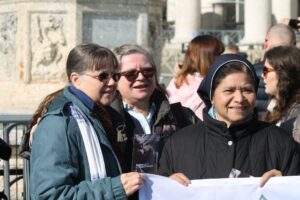
Sister Gabriella Bottani is a Comboni Missionary Sister and gained firsthand knowledge of human trafficking when she was in Brazil where she worked in the prevention and accompaniment of children and adolescents who were suffering from sexual exploitation and abuse.” She clarifies: “I like to say that it is not we who draw near to them. It is a long journey, during which one needs to strip oneself of many things, in order to draw near to something that is such a sacred part of ourselves: the suffering that we bear. A lengthy interior journey is required so that you don’t enter like a bull in a china shop and break anything that is already in very fragile condition. Therefore, it is often they who approach us”.
But what is at the basis of this bond of closeness and accompaniment by Religious and Consecrated Women, with people who have suffered this violation of their human dignity?
“Surely, it’s a calling,” sister Bottani clarifies, “a calling from a God who sees, and sees through our eyes, becomes impassioned through our hearts, takes care through our hands. I think that what joins us is this meeting each other in God, in the care, in the accompaniment, in the beautiful but also very painful processes of redemption. It involves a role, a role of condemning this serious violation of human dignity and profound limitation of freedom for the sole purpose of exploitation, which is rooted in an economic system that destroys people”.
A vast and hidden problem
It is difficult to give the dimensions of this phenomenon, which is largely hidden. According to estimates, the majority of victims are women and children who are trafficked mainly for sexual exploitation. It is one of the most profitable criminal activities along with weapon and drug trafficking. “Women are also trafficked to be houseworkers and caretakers, as well as for the service sector – cleaners, hotel services, massage businesses. . . We also find women in agriculture, but there are more men. However, for the tea harvest, in some regions, it is mostly women. Then there is the whole problem of exploitation in the construction industry, textile industry, brick industry, shrimp farming in mangrove forests of Southeast Asia, in the gold mines of Ghana, or in the fishing industry on fishing boats…”
According to the International Labor Organization (ILO) some 21 million human beings have been victims of trafficking. Every year between 700,000 to 2,000,000 people are trafficked, mainly from Asia.
“These individuals are recruited from people who have little access to work, who come from poor backgrounds or who are suffering from the impact of the destruction of the environment and other phenomena, such as land grabbing. This is why we say that land exploitation and human exploitation are connected. However, normally, the areas of exploitation are generally the areas where there is a greater need for low-cost labor. And we know that some things, such as the determination of prices by large agricultural multinationals, result in more and more reduction in labor costs”.
Sister Gabriella explains that we do not have to necessarily imagine an international trafficking route from Africa to Europe, for example. It can also be an internal, national, phenomenon. “What we must never forget,” she is keen on emphasizing, “is that behind every number, every statistic, first and foremost, there is a life, a person with hopes and dreams and relationships that are being destroyed for financial profit. They are names, they are people”.
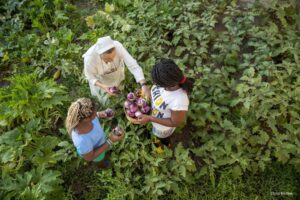
A difficult process of rebirth
How do you accompany a person who has been the victim or human trafficking, through the process of recuperating their dignity and humanity? Sister Gabriella explains that exploitation is often so “normalized” by the victims that they do not manage to recognize the seriousness of their own exploitation, because it is their only means to survive. But when one manages to find the strength to decry the abuse, then, the most important thing is to first feel safe: “Knowing that you have food, a place to sleep, a safe place where you can get into touch with yourself again. Having clean pajamas, fresh scented bedsheets: what we take for granted, but is not that way for everyone, regaining a basic respect for one’s own body and having a nurturing environment. Then, for those who manage it and are not suffering from trauma, they can return to doing normal things. The younger ones will go back to school, those who can perform simple tasks will begin occupational therapy…”
It is a whole process of accompanying their physical and mental health, a psychological accompaniment, as one works through the trauma and rebuilds one’s life. To the point of being able to hold a dignified job that a person can live on, that inserts the person into society.” But there is still the question of compensation. Who compensates the economic damage to a victim of human trafficking? “Out of 2154 estimated victims of trafficking in 2019, only one trafficker was brought to justice,” says Sister Gabriella, “that is, it seems that when it comes to trafficking no one is responsible. More than punishment, I prefer to talk about responsibility, because we must learn to take responsibility for the actions we perform, for the whole chain of exploitation – from those who recruit to those who exploit, to those who profit from the exploitation. So, yes, there are processes that must be enforced with regard to individual responsibility, but, as the World Day of Prayer this year invites us – and the Economy of Francesco also invited us – we must think about the structural dynamics that form the basis of this systematization of exploitation in which some people, many, because we are talking about millions, find themselves crushed, so that they can be wedged into a system that is actually torture”.
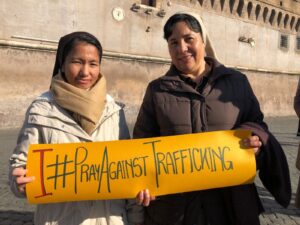
A Day of Prayer and Awareness Against Human Trafficking
Hence, a day like February 8th, a day of prayer and of awareness “as Christians and more and more people from other religions are joining together. For example, a Buddhist monk will also participate in the group from Japan. Prayer is important, we cannot separate prayer from action, hope supports. Prayer must give rise to thoughts which then become actions. This year’s theme is An Economy Without Trafficking. We hope it will help us to take stock, not only of the violence and drama, but also the framework, the contours and deepest reasons for the phenomenon of human trafficking.”
Everyone is invited to join us on February 8, 2021. Just go to the website at:
https://preghieracontrotratta.org/ where you will find information and the prayers in English, French, Italian, Spanish and Portuguese along with a link to the worldwide marathon on YouTube: https://www.youtube.com/c/preghieracontrotratta.
When spiders unite, they can tie up a lion.
(Ethiopian Proverb)
